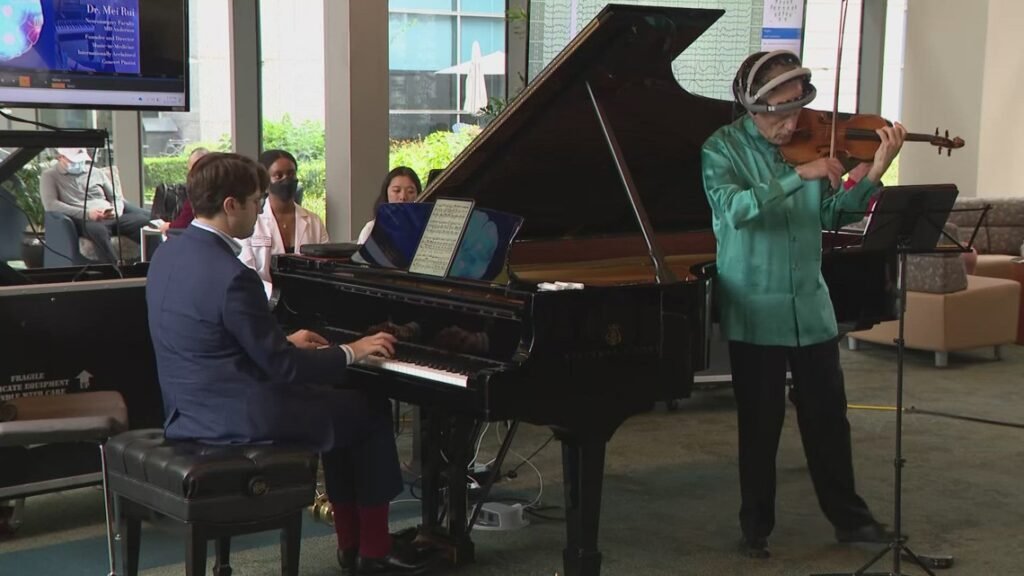MD Anderson Cancer Center explores music’s potential to heal the body using advanced brain mapping.
HOUSTON — MD Anderson Cancer Center is conducting groundbreaking research to determine whether music can literally heal the body.
Researchers are using advanced brain wave mapping technology to study how live musical performances affect different regions of the brain.
The studies involve professional concert musicians, patients, doctors and volunteers, with researchers measuring electrical brain activity through EEG headsets during live performances.
Dr. Mei Rui is a concert pianist and leads the program investigating music’s therapeutic potential.
“Because we have now quite a bit of data showing that music has definitely a profound impact. Not just pain, anxiety, but also, pharmaceutical needs. So no side effects,” Dr. Mei Ru said.
The research aims to help doctors prescribe specific types of music to stimulate targeted brain regions, potentially reducing or replacing narcotics and opioids for surgery patients.
Professor David Kaplan, UCLA Piano Chair, described music’s unique neurological impact.
“It’s a very invasive art form. In a way. It enters our ears and has a direct connection with our brain in ways that we don’t understand,” Kaplan said.
Multiple medical applications under investigation
The research extends beyond pain management to address occupational stress in healthcare settings. One study involving 132 neurosurgeons examines whether certain music can help doctors relax during lengthy operations while maintaining their concentration and attention levels.
Another significant focus involves treating cognitive impairment, including “chemo brain” or brain fog experienced by cancer patients. Rui also hopes to pursue a larger cognitive issue — whether music can help with memory loss and broader cognitive issues.
“In dementia, right? If you can somehow target the activation of the gamma frequency that’s been shown to enhance cognition,” Dr. Rui noted, explaining how specific brain wave frequencies might be therapeutically targeted.
Promising preliminary results
Initial data suggest that certain passages from composers like Rachmaninoff and Mozart can enhance gamma frequency brain waves associated with improved cognition.
Supporting the therapeutic potential of music, a large decades-long twin study revealed remarkable findings about musical training’s long-term cognitive benefits.
According to the research, “there is a 61% reduction in the risk for developing any cognitive impairment” for individuals who had three or four more years of musical training during childhood. Dr. Rui called this finding “incredible.”
Technology meets art
The study uses sophisticated brain monitoring equipment, with researchers placing what they playfully call “the magic brain hat” on participants. The headset contains 21 sensors targeting different brain regions to record reactions to live musical performances.
During the research sessions, Dr. Rui conducts real-time analysis of participants’ brain wave patterns. They are displayed on large monitors so audiences can watch the brain waves while they listen to the concert.
The MD Anderson Music in Medicine program represents a growing field investigating whether the age-old belief that “music heals the soul” might extend to measurable, clinical healing of the body through targeted neurological stimulation.
Got a news tip or story idea? Text it to us at 713-526-1111.
